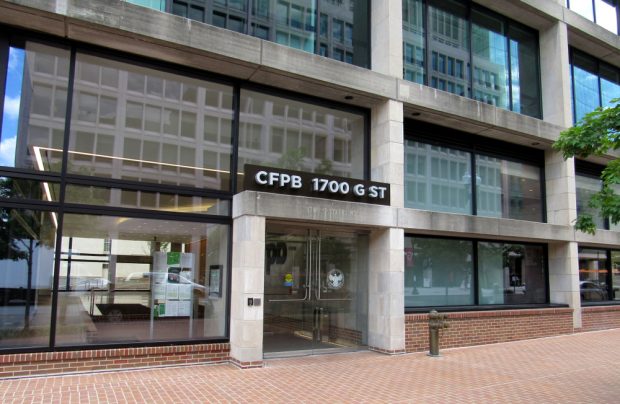 Entrance to the CFPB headquarters. (Source: Shutterstock)
Entrance to the CFPB headquarters. (Source: Shutterstock)
A federal appeals court ruled Tuesday that actions the CFPB has taken since it was created are not illegal even though the U.S. Supreme Court decided the agency's structure was unconstitutional.
In deciding the case, the 9th Circuit Court of Appeals ruled that since CFPB Director Kathy Kraninger "ratified" the actions, the agency's rules and enforcement actions were legal. Following the Supreme Court's decision earlier this year, Kraninger said she was issuing the statement to address any questions about the legitimacy of the agency decisions in light of the Supreme Court ruling.
Recommended For You
In February 2017, the CFPB issued a Civil Investigative Demand to Seila Law, as part of a probe into the firm's nationwide debt relief business. The agency said the business deceived financially vulnerable people and cost them millions of dollars in legal fees.
The law firm challenged the structure of the agency in federal court, arguing that it was unconstitutional because the agency's director could only be removed by the president for cause. When the case reached the Supreme Court, the court agreed with the law firm, but said that it was returning the issue of the legality of the agency's actions back to the appellate courts.
"Director Kraninger's ratification remedies any constitutional injury that Seila Law may have suffered due to the manner in which the CFPB was originally structured," the 9th Circuit Court of Appeals decided Tuesday. "Seila Law's only cognizable injury arose from the fact that the agency issued the CID and pursued its enforcement while headed by a Director who was improperly insulated from the President's removal authority."
The Supreme Court ruling means that when he takes office, President-elect Joe Biden may fire Kraninger — an action he widely is expected to take. Biden has appointed a transition team to examine the agency. That team includes many members who supported the regulatory regime established by former CFPB Director Richard Cordray — an Obama Administration appointee.
© Touchpoint Markets, All Rights Reserved. Request academic re-use from www.copyright.com. All other uses, submit a request to [email protected]. For more inforrmation visit Asset & Logo Licensing.






